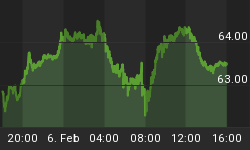For years officials at the Federal Reserve Bank, including Chairman Bernanke himself, have assured us that inflation is under control and not a problem-- even as the price of housing, energy, medical care, school tuition, gold, and other commodities skyrockets.
The Treasury department parrots the Fed line that consumer prices, as measured by the consumer price index (CPI), are under control. But even many mainstream economists now admit that CPI grossly understates true inflation. The most glaring problem is that CPI excludes housing prices, instead tracking rents. Everyone knows the cost of purchasing a home has increased dramatically in the last ten years; in many regions housing prices have more than doubled in just five years. So price inflation certainly is alive and well when to comes to the largest purchase most Americans make.
When the Federal Reserve increases the supply of dollars in circulation, both paper and electronic, prices must rise eventually. What other result it possible? The supply of dollars has risen much faster than the supply of goods and services being chased by those dollars. Fed policy makers have more than doubled the money supply in less than ten years. While Treasury printing presses can print unlimited dollars, there are natural limits to economic growth. This flood of newly minted US currency can only increase consumer prices in the long term.
Mr. Bernanke has stated quite candidly that he will use government printing presses to stimulate the economy as necessary. He is famous for joking that he would endorse dropping money from helicopters if needed to prevent an economic slowdown. This is nothing short of an express policy to destroy our money by inflation. Every new dollar erodes the value of existing dollars based on simple supply and demand. Does anyone really believe the Treasury can make us rich simply by printing more money?
The coming dollar crisis is not likely to be "fixed" by politicians who are unwilling to make hard choices, admit mistakes, and spend less money. Demographic trends will place even greater demands on Congress to maintain benefits for millions of older Americans who are dependent on the federal government.
Faced with uncomfortable financial realities, Congress will seek to avoid the day of reckoning by the most expedient means available-- and the Federal Reserve undoubtedly will accommodate Washington by printing more dollars to pay the bills. The Fed is the enabler for the spending addicts in Congress, who would rather spend new fiat money than face the political consequences of raising taxes or borrowing more abroad.
The irony is that many of the Fed's biggest cheerleaders are the same supposed capitalists who denounced centralized economic planning when practiced by the former Soviet Union. Large banks and Wall Street firms love the Fed's easy money policy, because they profit at the front end from the resulting loan boom and artificially high equity prices. It's the little guy who loses when the inflated dollars finally trickle down to him and erode his buying power. Someday Americans will understand that Federal Reserve bankers have no magic ability -- and certainly no legal or moral right -- to decide how much money should exist and what the cost of borrowing money should be.















